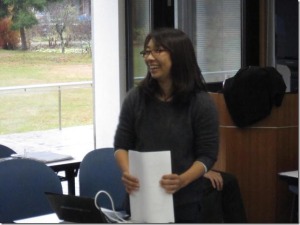SIETAR Retreat was held in November 2015 at Karuizawa where we invited 4 lecturers.
Perception1: Perception Process
Professor Shoko Araki from Oberlin University
Shoko Araki, a former president of SIETAR Japan, gave an outstanding workshop on the fundamentals of communication, and what is included in what we understand as communication. Many SIETAR members hoped she would do a sequel workshop soon at future retreats.
Professor Araki discussed the following essence of communication in her lecture.
・Communication is not about transmitting a message but to create an image and to infuse meaning into it.
・People cannot have the same experience because each individual will be drawn to and pick up different information.
Professor Araki used many pictures and videos to make her point, and the participants were able to understand her ideas through these effective medium and by actually experience certain phenomena.
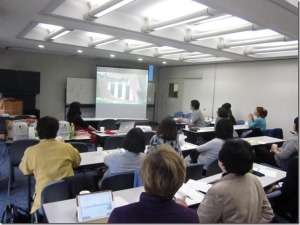
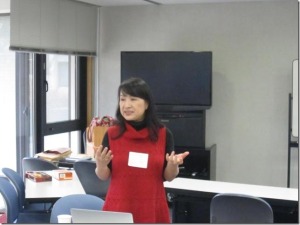
Perception2:Workshop
Mr. Akira Kusaka (Executive Coach, Business Consultant)
Whenever something new is presented to us, we are apt to view it with preconception, stereotyping, and symbolizing. With continuous practice of drawing, you can build up your skills to see things as they really are.
In the workshop, participants first drew a picture upside down, and in four separate pieces so that we did not know what we were actually drawing. Second, participants were instructed to draw a picture by looking at the original pictures as a whole and we discussed which was more accurate and also which was easier to draw. The important lesson we learned was that it was easier to see something without interpretation (thus using our right brain, rather than our left brain) as knowing the meaning of a picture can cloud our ability to see things as is.
Another drawing activity we experienced was to draw a picture of our palm with all the wrinkles and detail.
This workshops is also to help understanding the fact, rather than to interpretation of the fact.
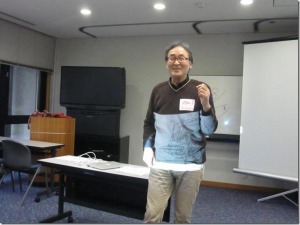
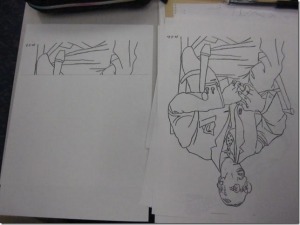
Speaker: Dr. Ryushi Uchida (Shokei Gakuin University)
Program Abstract: Deepening Our Understanding of Discrimination Against the Buraku as a Minority Group: Issues of Today and Future Challenges
In this session, Dr. Uchida explained historical and current issues related Buraku discrimination using historical and statistical data.
Buraku discrimination is derived from the profession of slaughtering animals such as cows, and expanded to discriminate to those who lived in the same district with such person, and lastly pick up discrimination to those who are related to Burakumin, family, and other relations.
Dr. Uchida suggested that in order to solve these problems, the Japanese government should collect more quantitative data to understand the current situation, because such essential data have not been collected for many years (including areas, number of people, attitude relating to Buraku) to avoid raising the problems faced by Buraku people as serious issues to contend to.
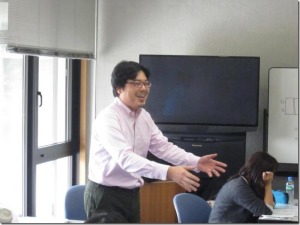
Tami Kamikawa
(Founder Buraku Heritage Website to transmit information concerning Buraku)
In this workshop, Tami Kamikawa picked up themes where discrimination against Burakumin occur such as “marriage,” ”housing,” and “employment.”
Participants were asked to stand in a line as to what percentage they agreed or disagreed with certain statements about Burakumin, and had to explain their reasoning. This exercise illuminated both consciousness and subconscious attitudes we ourselves held toward the Buraku.
Ms. Kamikawa explained to us that it was a fruitful experience to do this workshop with people who were well-versed in cross-cultural communications.
